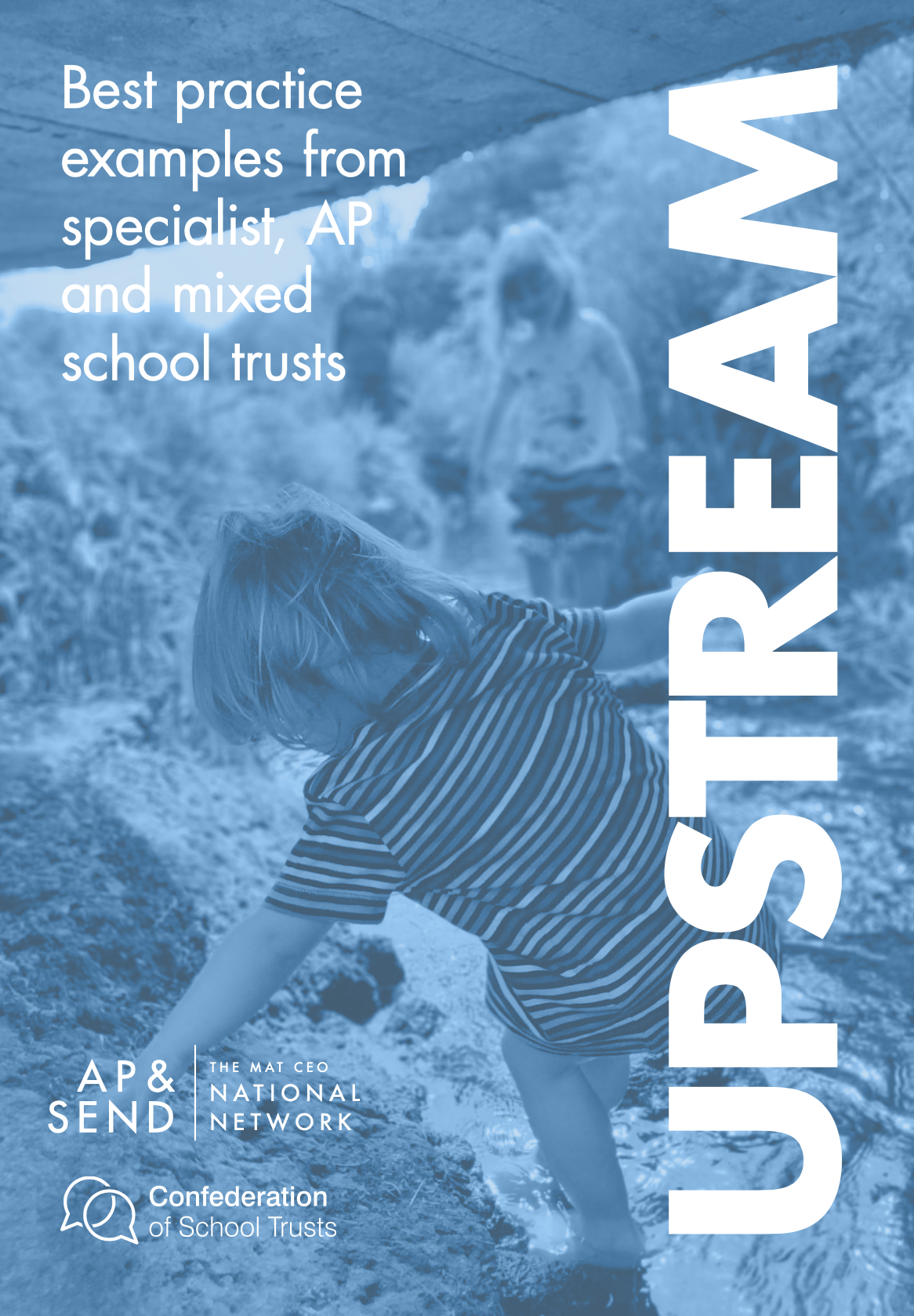
In June 2025, the APSEND National Network for MAT CEOs and CST (Confederation of School Trusts) held a joint engagement call for their members, during which they shared plans to develop a strong collective voice with respect to current funding and commissioning challenges in the sector. Both sector bodies were keen to highlight the vital role the specialist sector currently plays, especially in relation to the excellent ‘upstream’ preventative work that takes place in many trusts across the country through their outreach work. As such, they issued a call for evidence from their members in the form of short case studies focused on their work in this area. This paper presents the findings from that call for evidence and includes 27 case studies from 17 different trusts.
From this analysis there are five main implications for policy makers:
- Invest in upstream capacity: Early intervention through AP and specialist outreach demonstrably reduces exclusions. Commissioning should reflect AP’s preventative role, not only fund last-resort placements.
- Stabilise commissioning: Time-limited pilots, even where successful, create fragility and churn. Multi-year, sustainable commissioning arrangements are essential if effective models are to embed.
- Embed family engagement: Interventions work best when parents and carers are active partners. Funding and programme design should explicitly build family support into preventative work.
- Support an evidence culture: Robust data — such as the attendance and reintegration outcomes from Olive Academies, or system-wide monitoring from the Enable Inclusion Team — strengthens accountability and makes the policy case. Evaluation should be proportionate but consistent across providers.
- Recognise AP as a system partner: AP is not just a destination; it is a strategic resource. National policy should frame AP as a contributor to fair access protocols, system-level inclusion panels, and mainstream school improvement.
The collective message is clear: the specialist sector is already delivering preventative, upstream interventions that work. With sustained commissioning, stronger evaluation frameworks, and recognition of AP’s strategic role, these models can be embedded more widely to secure better outcomes for pupils and a stronger, more inclusive education system.
We hope you enjoy reading the report!